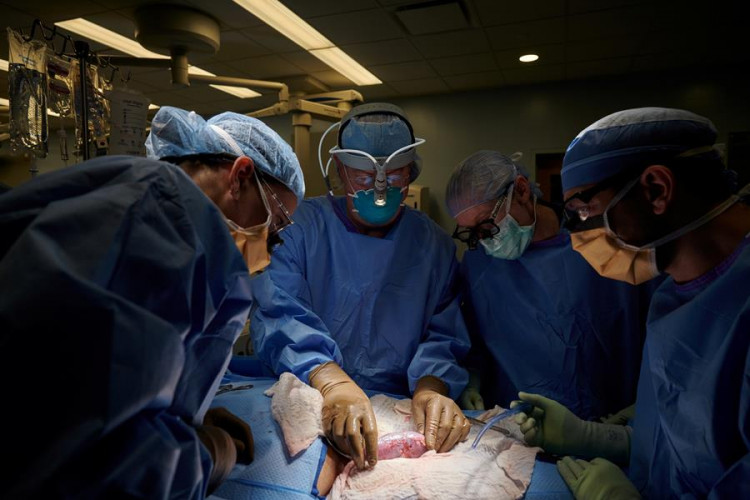Surgeons in New York have successfully transplanted a kidney developed in a genetically engineered pig into a human patient.
The surgery is an important step toward creating a massive new supply of organs for critically ill patients.
A pig whose genes had been changed such that its tissues no longer carried a chemical known to trigger nearly immediate rejection was used in the surgery at NYU Langone Health in New York City.
Reuters has reported that the recipient was a brain-dead patient with evidence of kidney failure whose family agreed to the experiment before she was to be taken off life support.
The new kidney was linked to her blood veins and kept outside her body for three days, allowing researchers access to it.
The function of the transplanted kidney was tested. Dr. Robert Montgomery, the study's lead investigator, said the results "looked very normal."
Montgomery said the kidney produced "the volume of urine that you would anticipate" from a transplanted human kidney, and there was no evidence of the vigorous, early rejection found in non-human primates when unmodified pig kidneys are transplanted.
After the procedure, the recipient's elevated creatinine level - a sign of impaired kidney function - reverted to normal, according to Montgomery.
The United Network for Organ Sharing said almost 107,000 people in the United States are waiting for organ transplants, with more than 90,000 of them waiting for a kidney.
The usual wait time for a kidney transplant is three to five years.
Scientists have been working on the potential of utilizing animal organs for transplants for many years, but they have been stopped by the question of how to avoid quick rejection by the human body.
Montgomery's team hypothesized that removing the pig gene for a carbohydrate that causes rejection - alpha-gal, a sugar molecule or glycan - would solve the problem.
United Therapeutics Corp's Revivicor unit produced the genetically engineered pig, named GalSafe. The U.S. Food and Drug Administration approved it in December last year for use as a meat-free food and as a possible source of human treatments.
The FDA stated that medical goods created from pigs would still require particular approval before being utilized in humans.
Other scientists are looking into whether GalSafe pigs may be used to make everything from heart valves to skin grafts for human patients.






